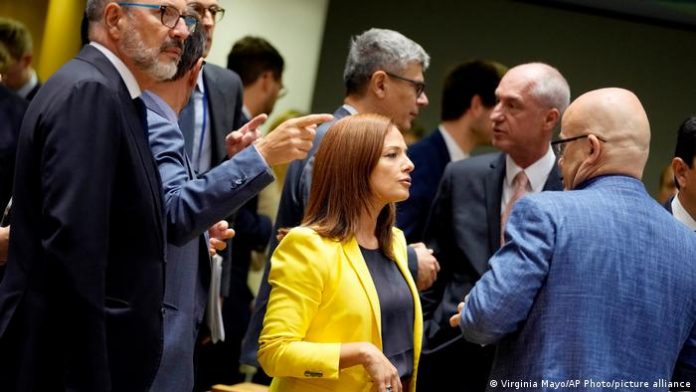In view of the high energy prices, the EU countries have agreed on European emergency measures. At a special meeting in Brussels, the responsible ministers agreed that energy companies would in future have to hand over part of their crisis profits to the state, as announced by the Czech Council Presidency. This money is intended to relieve consumers.
According to EU diplomats, future income from electricity companies will be capped at EUR 180 per megawatt hour. The difference to the higher sales prices on the stock exchange is to be skimmed off – at least in part. In addition, oil, coal and gas companies as well as mineral oil companies would have to participate in the relief for citizens with a “solidarity levy” of at least one third of their excess profits.
Third pillar: save electricity
As the third pillar, the ministers approved a mandatory electricity savings target of five percent in times of high demand, i.e. when electricity is particularly expensive because expensive gas has to be used for production. Overall, the EU countries should voluntarily reduce their electricity consumption by 10 percent.
Since the price of gas has risen sharply against the background of the Ukraine war, electricity has also become more expensive. This is because the price of electricity is determined by the most expensive power plant that is switched on for production. Currently, these are primarily gas-fired power plants. Producers of cheaper electricity – for example from the sun, wind, nuclear power or lignite – can sell it at high prices.
No decision on gas price cap
There will probably still be no decision on an EU-wide gas price cap, which more than half of the member states are calling for. Germany had not supported the proposal, for which Italy and France, among others, are campaigning, arguing that it could have an impact on security of supply. Federal Economics Minister Robert Habeck warned that a possible price limit should not lead to too little gas reaching Europe.
Meanwhile, the Bundestag in Berlin passed a reduction in VAT on natural gas deliveries and district heating. The deputies of the traffic light coalition, but also of the Union and the AfD voted for a reduction from 19 to seven percent by the end of March 2024. On Thursday, the government announced a national gas price brake to support customers in the face of massively increasing bills. The coalition partners from the SPD, Greens and FDP want to take out up to 200 billion euros in loans for this.
jj/ww (dpa, afp, rtr)













